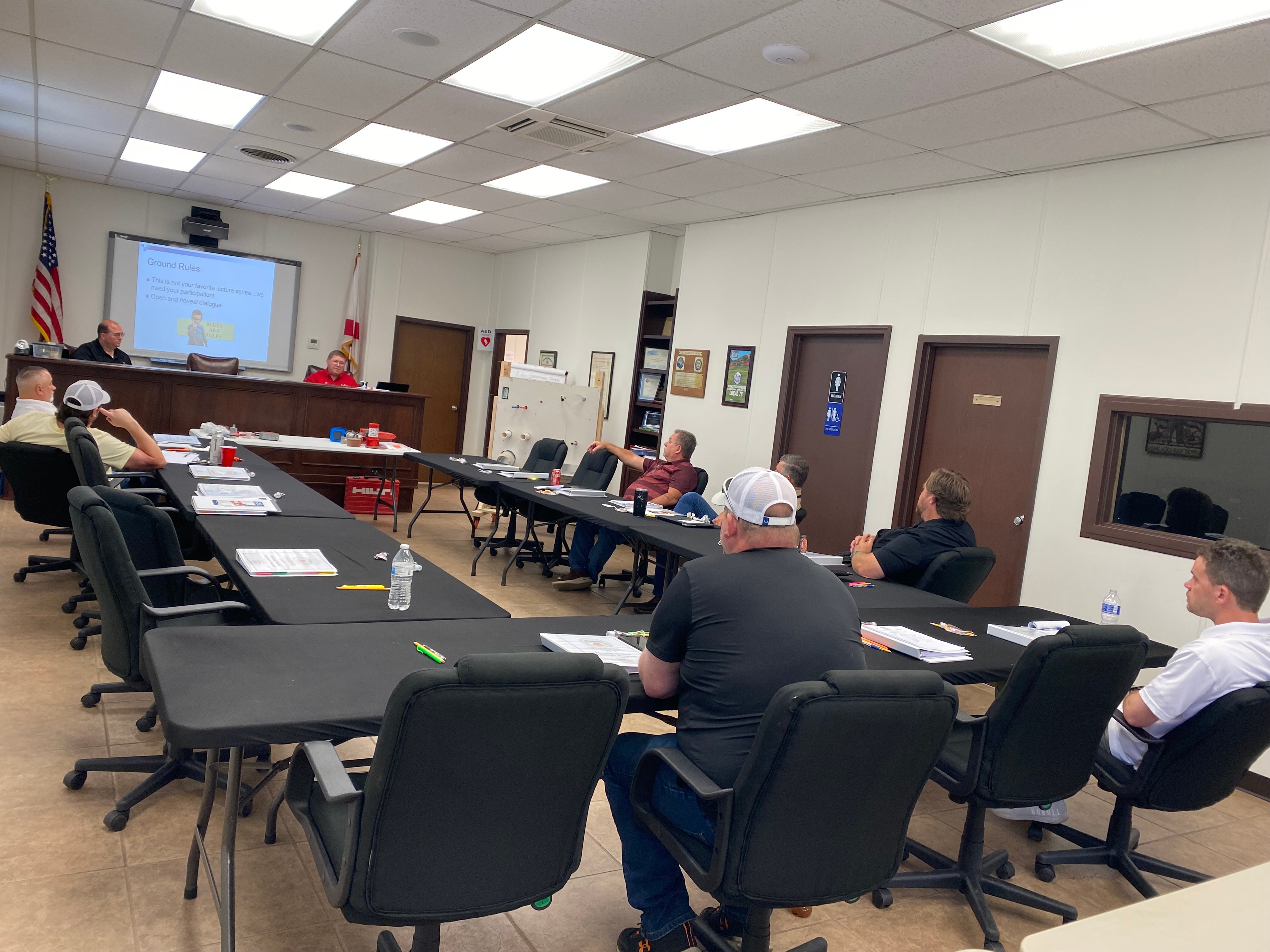
Mechanical Insulators Local 78 in Birmingham, Ala., hosted the Mechanical Insulators Labor Management Cooperative Trust (LMCT) Firestop Market Recovery Program in early June.
The LMCT Firestop Market Recovery Program is designed to bring together Local Union leadership and contractors to gain market share and increase Firestopping manhours.
As part of the training, an assessment of the existing market was conducted and then compared to other areas and best practices to ensure a customized approach appropriate for the Alabama market. Firestop contractor techniques and development were also addressed during the four-day class. Upon completion of the program, all parties gained knowledge of Firestopping, its intended purpose, where to bid it and how to complete it economically to increase the market share.
Held June 5-8, Local 78 Business Manager Craig Francis took part in the training, along with other Local Union officers, including Business Agent and Organizer Jacob Stanley, President Christopher Kugler, Apprentice Coordinator Justin Walker, Christopher Howard, Trevor Morgan and Eric Robertson. Local 48 Atlanta Business Agent and Organizer Kenneth Slaven attended the event, as well. The employers were represented by Luke Lewis and Jason Kelly. Such involvement offered a unique perspective of the Local’s involvement of Insulators with the various Firestop markets.

It is no secret that, for a host of reasons, there are fewer Mechanical Insulation opportunities. As such, our industry must acquire additional work opportunities, including Firestop, which is in our jurisdiction of work.
“I feel this course helped the contractors see the true market of the firestop industry in our area,” said Francis. “Going to college dorms, hotels, apartment complexes and the like, we have noticed very little of our traditional Mechanical Insulation being used. Our work in those types of buildings is about 85 percent Firestop. The contractors also learned that there is just as much money to be made in Firestop as there is in Mechanical Insulation.”
The first two days of the event were dedicated to the Union leadership, while the last two days focused on the area contractors. All parties were welcomed to attend the entire four days.
Over the course of the FMRP, various topics were reviewed that covered the vast amount of Firestop industry knowledge. It also helped both labor and management realize, respect and value each other’s commitment to have a true vested partnership. Just as important was the spontaneous dialog between all the participants about their prior experiences, good and bad, to help develop a strategy for future initiatives.
Among the items discussed were:
- Basic Firestop concepts
- The Local’s market analysis
- FM/UL contractor qualifications
- Bidding techniques
- Types of training needed for Labor and Management
- Basic understanding of building codes and fire codes
- Approved firestop systems overview
- QA/QC modes
- Liabilities
- Developing relationships with the fire inspection community
- Where to locate Firestop in specifications
- Salesmanship from both the workers and contractors
- Other topics too numerous to list.
For Francis, the class offered the Local’s leadership and contractors confirmation of what he and Stanley had been telling them about Firestop in the Birmingham area.
“Hearing it from a contractor who has been successful in the industry really helped,” said Francis. “When they saw the spreadsheet on the manhours and profits, it got their attention.”
The contractors who are successful with sustainable Firestop work have increased and enhanced their Mechanical Insulation opportunities as well, he noted.
The class is only the beginning of a journey of hard work and cooperation to capture the Firestop market in the Local 78 jurisdiction. Each partner now understands the commitment that must be made in order to successfully work together and accomplish the ultimate goal – to capture the Firestop market.
Nationwide, the union Firestop market had a large range of successes and failures. Now is the time to change the paradigm of explanations for success. For over 35 years, the industry was plagued with reasons and justifications not to control the market, and this has to change. For several reasons, Firestop systems are the work of the Insulators:
- Work techniques and materials are similar to Mechanical Insulation
- Timing of the work is similar to Mechanical Insulation
- Specifications, in most cases, are within the Mechanical Insulation specs
- Superior Mechanical Insulator training programs are needed to utilize this very specific, highly skilled industry
For Francis, the program is something most Locals should consider.
“I recommend all locals pursue the [Firestop] work and to host the FMRP in their area,” he said.
If any Insulators Local Union is interested in hosting the Firestop Market Recovery Program, please contact LMCT Deputy Director Gina Walsh.


Comments